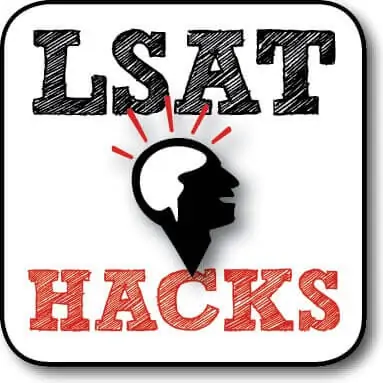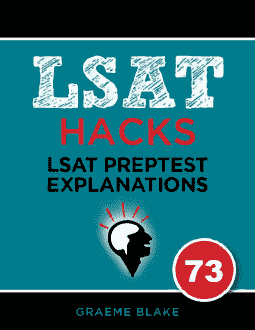DISCUSSION: The best way to answer this type of question is to eliminate answers you’re sure don’t appear in one of the passages. But be careful….use a high standard of certainty.
For instance, I knew that passage A is entirely concerned with theory, and not practice. This eliminated B, C and D. Often, awareness of the main idea of a passage can show what it wouldn’t mention.
___________
- CORRECT. See lines 15-18 and lines 36-39.
Passage B is the one that requires explanation. It’s true that the transfers in lines 36-39 require federal approval, but they’re still transfers from one owner to another. - Passage A doesn’t mention any legal basis for anything. Passage A is an abstract moral discussion that doesn’t descend to the level of specific laws.
- Only passage A discusses the possibility of property rights in a wholly just world (lines 9-10). Passage B say “ideally” on line 56, but that’s just an aside. Passage B isn’t concerned with describing an ideal world and property rights in that world.
- Passage A is concerned with theory. It talks about rectification, but it does not pay attention to whether its theory is practical or not.
- Only passage B mentions an invasion (line 53).

Want a free Reading Comp lesson?
Get a free sample of the Reading Comprehension Mastery Seminar. Learn tips for solving RC questions


Choice D got me because even though I guess Passage A did not mention the word “practical”, it does give a definite (practical) way in which we would employ the theory of rectification. I mean, pretty much the entire final paragraph spells out the details on how we’d go about it. In my mind those sort of laid out plan imply that it is a practical solution.
But, A is still clearly the stronger answer.
The problem with Passage A is that it is entirely theoretical. They layout principles for what should be done. But they don’t discuss how to do it. Their final line suggests what ought to happen, but that’s not a practical solution.
Imagine if a school bully stole your lunch. You went to the school intellectual. They go into detail about the principles of who should eat each lunch and then say “Therefore, the bully must give you your lunch back”.
That’s not practical at all! They’re just talking about principles, but they have no ability to enforce them, nor any suggestion for how you could.
Preptest73, Section 1, question 22:
these answer choices piss me off. clearly theory of justice may be a cousin to moral theory but not the equivalent meaning. there is NO mention of “moral” anywhere in the passage which is fine in principle because it is assumed we have brains and can ascertain meanings from different syntax but for god sake…. theory of justice = moral theory??? Just shoot me now, before June 6. at least than I can save face from a poor score. LOL
Justice = what is right
Moral theory = what is right
Functionally, they’re the same thing. I’m not a philosopher so maybe there a distinction I’m not aware of between the two, but on the LSAT justice = moral = what is right = should do.
In general, don’t split hairs on the LSAT. This is hard to do, as sometimes small differences matter, so this seems like difficult advice. One way to judge is whether the difference would actually cause you to act differently.
For instance, cancer vs. health. Not the same. You would take different actions to improve health vs. treating cancer. (the first is broader).
But suppose I say: I have a theory for how you can act justly vs. I have a theory for how you can act morally. I’m not really sure how I’d expect the two to be different. Therefore we can assume they’re the same.
Also consider that ALL of the answers on 22 mention morals. This is a strong, strong hint that moral = justice and you’re not making an error to assume that.